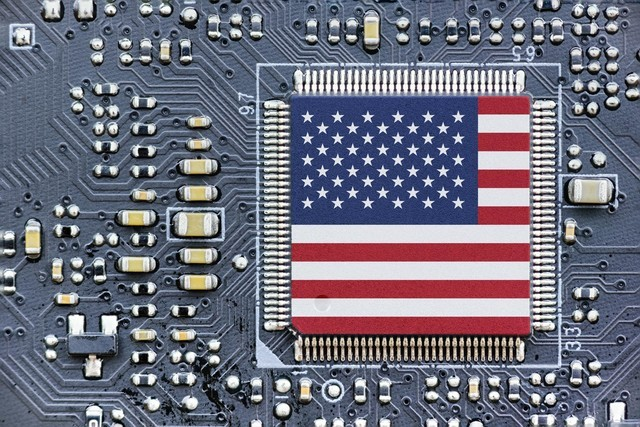Trump Administration Plans to Lift Biden-Era AI Chip Restrictions
Recently, according to multiple foreign media reports, the Trump administration is planning to lift the AI chip restrictions from the Biden era. This news has attracted widespread attention, as it involves not only adjustments to U.S. domestic technology industry policies but also the potential to have a far-reaching impact on the global semiconductor market and the international technology cooperation landscape.
The AI Chip Restriction Policy of the Biden Era and the Controversy It Caused
 In January 2025, a week before leaving office, the Biden administration released the "Artificial Intelligence Proliferation Export Control Framework." This policy categorized countries and regions worldwide into three groups to regulate the export of chips by companies such as Nvidia. The first group includes about 18 countries and regions, such as members of the G7, Australia, and New Zealand, which are not subject to any restrictions; the second group consists of about 120 countries, where exports exceeding the limit will face quantity and licensing restrictions; the third group covers Mainland China (including Hong Kong and Macau), Iran, Russia, and North Korea, among others, effectively banning the export of related products to these countries. This policy aimed to keep the most advanced computing power in the hands of the United States and its allies. However, its complexity and bureaucratic nature were strongly opposed by major U.S. semiconductor companies, including Nvidia, AMD, and Intel, as well as foreign governments. These companies argued that the policy was too complicated and would hinder innovation in the United States.
In January 2025, a week before leaving office, the Biden administration released the "Artificial Intelligence Proliferation Export Control Framework." This policy categorized countries and regions worldwide into three groups to regulate the export of chips by companies such as Nvidia. The first group includes about 18 countries and regions, such as members of the G7, Australia, and New Zealand, which are not subject to any restrictions; the second group consists of about 120 countries, where exports exceeding the limit will face quantity and licensing restrictions; the third group covers Mainland China (including Hong Kong and Macau), Iran, Russia, and North Korea, among others, effectively banning the export of related products to these countries. This policy aimed to keep the most advanced computing power in the hands of the United States and its allies. However, its complexity and bureaucratic nature were strongly opposed by major U.S. semiconductor companies, including Nvidia, AMD, and Intel, as well as foreign governments. These companies argued that the policy was too complicated and would hinder innovation in the United States.
Policy Adjustments and Considerations by the Trump Administration
The Trump administration plans to lift these restrictions as part of its comprehensive revision of semiconductor trade restrictions. A spokesperson for the U.S. Department of Commerce said that Biden's AI rules were too complex and bureaucratic, hindering innovation in the United States. The Trump administration will replace them with a simpler rule to unleash the United States' innovative capacity and ensure its dominance in the field of artificial intelligence. However, the decision to revoke has not been finally determined. According to informed sources, the Trump administration will not implement the so-called AI proliferation rules that were set to take effect on May 15. During the period of formulating new rules, the U.S. Department of Commerce will continue to strictly enforce chip export restrictions.
In addition, officials from the Trump administration are actively promoting a new rule aimed at strengthening the control of overseas chips. Informed sources revealed that the government's decision could be announced as early as Thursday Eastern Time. Last week, other informed sources disclosed that officials from the Trump administration are considering abandoning the original "tiered licensing system" and replacing it with a "global licensing system" based on intergovernmental agreements. In other words, chip control could ultimately become a tool for Trump's trade negotiations.
Market Reaction and Future Outlook
Affected by the related news, Asian semiconductor chip stocks rose collectively. Tokyo Electron in Japan rose by 3%, Disco by 6.5%, Screen by 2.1%, Lasertec by 3.6%, and Advantest by 3.9%. SK Hynix in South Korea rose by 2.7%, and Samsung Electronics by 1.7%. The Philadelphia Semiconductor Index rose by 1.7% overnight, and Nvidia by 3.1%. Stacy Rasgon, an analyst at Bernstein, commented that the news is positive, pointing out that "it is a good thing for now," and the reported policy changes "eliminate some short-term uncertainties."
However, it is still unknown whether Trump's final decision will be to ease restrictions or to "go even further." If the Trump administration really lifts the AI chip restrictions from the Biden era, it may bring new market opportunities for U.S. semiconductor companies, helping them expand their global market share. It could also have a significant impact on the global semiconductor industry landscape. However, this policy adjustment may also trigger new international relations and trade issues, which require close attention from all parties to its subsequent developments.
Conevo Comprehensive IC Solutions
As a trusted distributor, Conevo offers a wide range of integrated circuits at competitive prices to meet the diverse needs of the electronics industry. Whether you need advanced SoC designs or specific project components, Conevo provides comprehensive solutions. Here are a few hot recommended IC models:
lTexas Instruments DRV8353SRTAR: A highly integrated gate driver for three-phase BLDC motors, supporting high efficiency and reliability in motor control applications.
lMicrochip Technology PIC12F675-I/P: An 8-bit microcontroller with internal oscillator and EEPROM, ideal for compact and cost-effective embedded designs.
lTexas Instruments TPS53688RSBR: A high-efficiency synchronous buck converter, providing stable power supply solutions for a variety of electronic devices.
Website: www.conevoelec.com
Email: info@conevoelec.com









